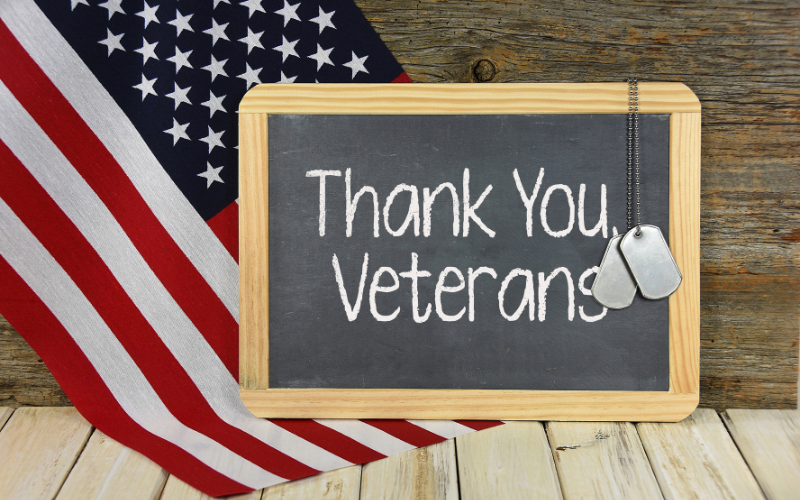
Dementia, especially in the late stages, is a major cause of disability. Veterans who are diagnosed with dementia will eventually require assistance with personal care activities. Dementia care provides veterans and spouses with invaluable support as they pass through the stages of dementia.
As a progressive brain condition, dementia causes a decline in memory, thinking, behavior, and the ability to perform the activities of daily living (ADLs). Alzheimer’s disease is considered to be the most common form of dementia as it contributes to about 60 to 70 percent of dementia cases, and it is the seventh leading cause of death in the U.S.
Treatment does not currently exist to cure dementia, prevent it, or otherwise slow its progression. However, certain treatments are available to help improve symptoms and quality of life. Veterans and their spouses who live an active, healthy lifestyle can reduce their risk for developing dementia.
Dementia care becomes increasingly necessary after the diagnosis is made. An early diagnosis allows for optimal management of the condition. Dementia care promotes physical and cognitive well-being; behavioral and psychological problems are detected and treated; and caregivers receive long-term support.
The Department of Veterans’ Affairs (VA) supports veterans who are diagnosed with dementia. The VA offers a range of care options and benefits, many of which veterans and their families are unaware. Veterans must meet specified criteria in order to be eligible to receive VA benefits that can be put towards dementia care.
1. VA Health Care
VA Health Care supports veterans from the initial dementia diagnosis through its terminal stage. While medications will not cure dementia or Alzheimer’s disease, the veteran’s physician may prescribe medicines to alleviate symptoms of the condition. VA Health Care covers the cost of these drugs.
Veterans who live at home will require supervision, especially as dementia symptoms progress. For instance, a dementia patient may wander, suffer hallucinations, become uncharacteristically aggressive, shuffle and fall, have issues with balance, or forget to take medications—all of which reduce well-being. VA Health Care professionals provide essential care.
VA Health Care may be provided by a range of professionals, such as home health aides, skilled home health care providers, respite caregivers, and homemakers. Family caregivers who also work may turn to VA Health Care for assistance at home. Eligible veterans are those who need nursing home level care.
2. Veteran Directed Care Program
Veterans are allotted a budget through the Veteran Directed Care Program (VDC) and may utilize funds to pay for care services. Veterans may elect to pay for adult day care, respite care, or home care as they deem fit. The funds may also be used to pay for family caregivers.
The VDC helps veterans with dementia to continue living in the community. Veterans may use VDC funds to purchase a wheelchair or wander prevention systems. Home modifications, such as installing grab bars or wheelchair ramps, may be made using VDC funds. All veterans enrolled in VA Health Care qualify.
3. HISA Grants
Financial assistance to make home modifications is provided through the VAs Home Improvements and Structural Alterations (HISA) Grants. Disabled veterans who demonstrate medical need (such as those with mobility issues) qualify, which makes veterans with mid- to late-stage dementia eligible to receive the grant.
4. State Veterans Homes
Veterans may elect to enter a State Veterans Home for care. These facilities provide care, such as nursing home care, assisted living (ideal for independent veterans in the early stage of dementia), and memory care (suitable for veterans with mid- or late-stage dementia).
All states in the US have at least one State Veterans Home. Some State Veterans Homes also admit the spouses of veterans. A veteran who requires long-term care in a State Veterans Home must demonstrate a clinical need for the service. Adult day care is also available in some facilities.
5. Aid & Attendance Pension
Long-term care is necessary as dementia progresses. The VAs Aid & Attendance Pension can offset the costs of long-term care for veterans and their spouses who have high care needs. Veterans and their spouses qualify once they require assistance with the activities of daily living.
Veterans and their spouses with mid- to late-stage dementia are eligible for the monthly payments through the Aid & Attendance Pension. However, veterans in the early stages of dementia may not qualify for the pension since their symptoms are not severe enough to warrant dependency.
The income provided in the pension may be used for a range of home care. Veterans and spouses may utilize the funds for respite care or adult day care, for instance. Memory care units, skilled nursing care, and nursing home stays may also be funded through pension payments.
Dementia care is essential for veterans and their spouses who receive a dementia diagnosis. Fortunately, the VA offers the abovementioned forms of assistance to support veterans at all stages of the condition. Family caregivers of veterans benefit from the support, too, as caring for a dementia patient can become overwhelming.
Dementia Care for Veterans from Assisting Hands

Veterans with dementia care needs may rely on the compassionate support from professional caregivers at Assisting Hands Home Care. We offer quality, dependable in-home care to ensure veterans and their spouses at any stage of dementia continue to live dignified lives.
Assisting Hands Home Care memory care services include support with all the activities of daily living. Our dementia caregivers prepare balanced meals, do light household chores, shop for groceries, provide discreet assistance with personal hygiene tasks, and offer pleasant companionship to care recipients.
Memory care from our home care agency is designed to support dementia patients. For instance, our dementia caregivers are trained to recognize aggressive outbursts as symptoms of the condition. We gently guide veterans to safety when they wander. We also provide timely medication reminders to ensure medication compliance.
Veterans and their spouses who receive VA Pension with Aid and Attendance benefits can put these benefits towards the cost of home care from Assisting Hands. We work with veterans and their families to help ensure that their benefits are applied correctly and provide the level of care that your veteran loved ones deserve. Our caregiver are experienced in providing quality home care for those suffering from all forms of dementia.
Veterans and their spouses rely on Assisting Hands Home Care for the most dependable Alzheimer’s and Dementia care in Burr Ridge, IL | Lyons, IL | Indian Head Park, IL | McCook, IL | Hodgkins, IL | Countryside, IL | Willow Springs, IL | Palisades, IL | La Grange Highlands, IL | Clarendon Hills, IL | Brookfield, IL | Western Springs, IL | Hinsdale, IL | Darien, IL | La Grange, IL | Downers Grove, IL | Oak Brook, IL | Willowbrook, IL, and its surrounding communities. Our home care specialists will perform an assessment and customize a flexible care plan that may be adjusted as care needs progress. Call us at (630) 407-1932 for a consultation.














